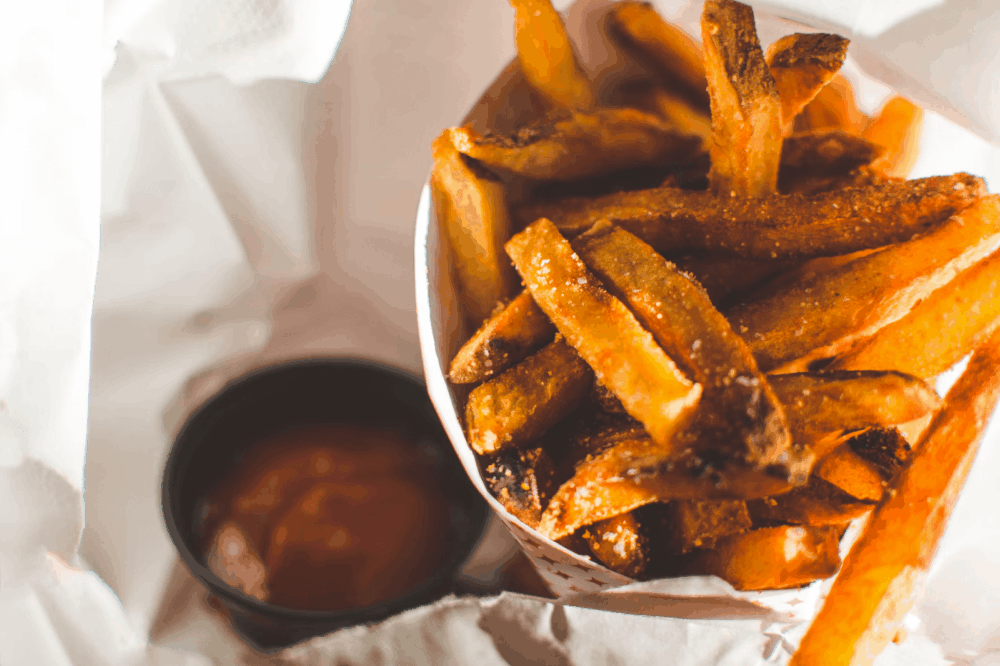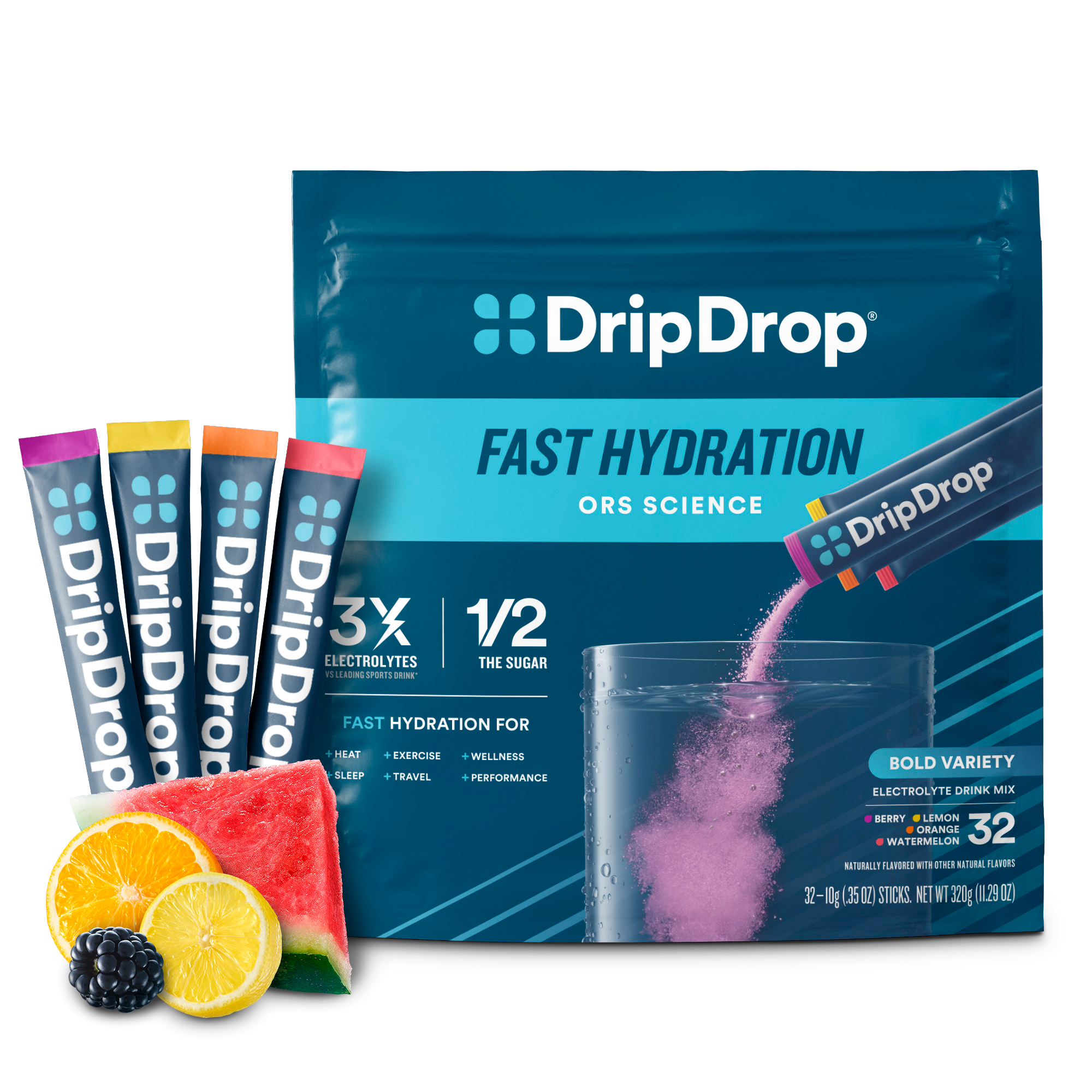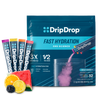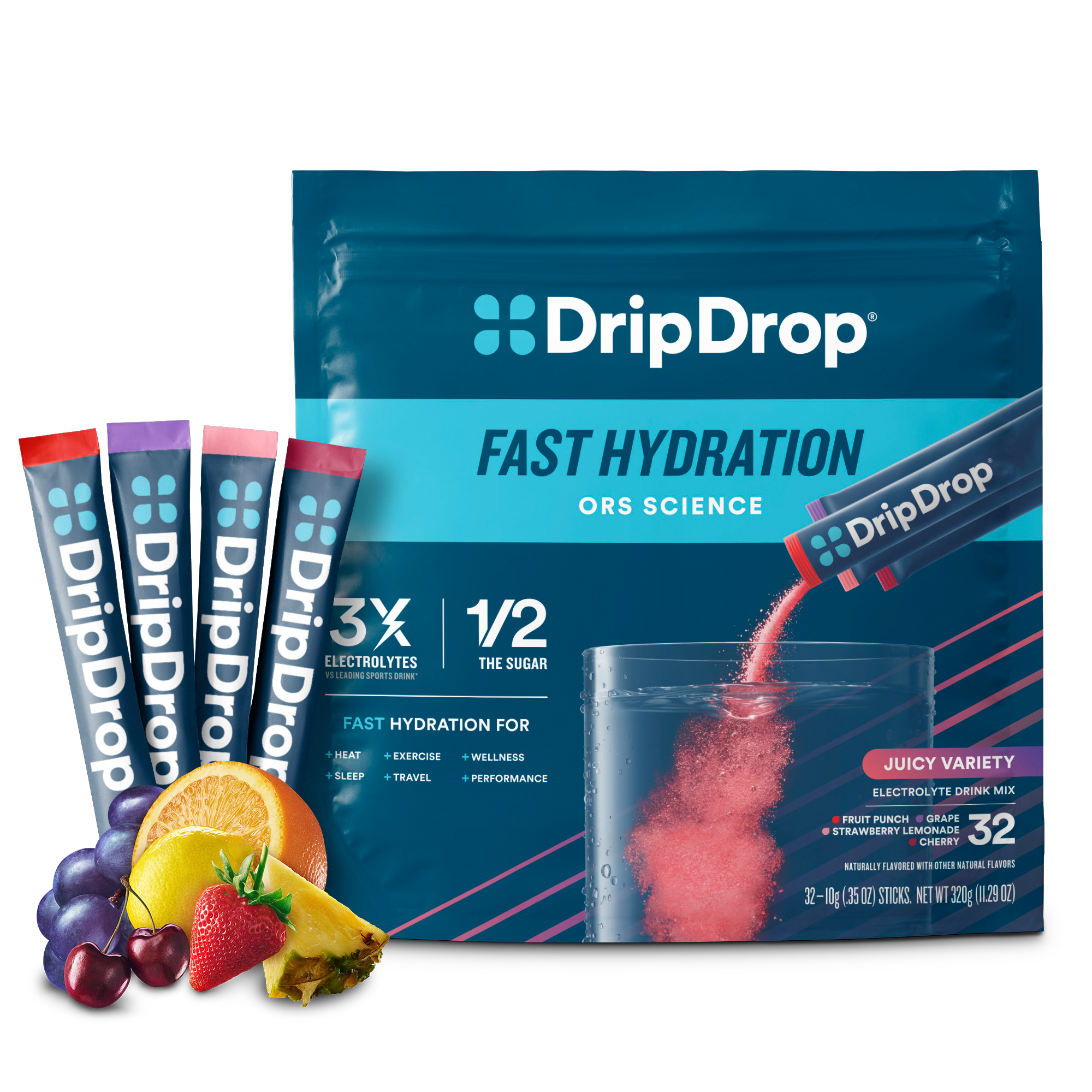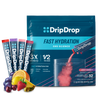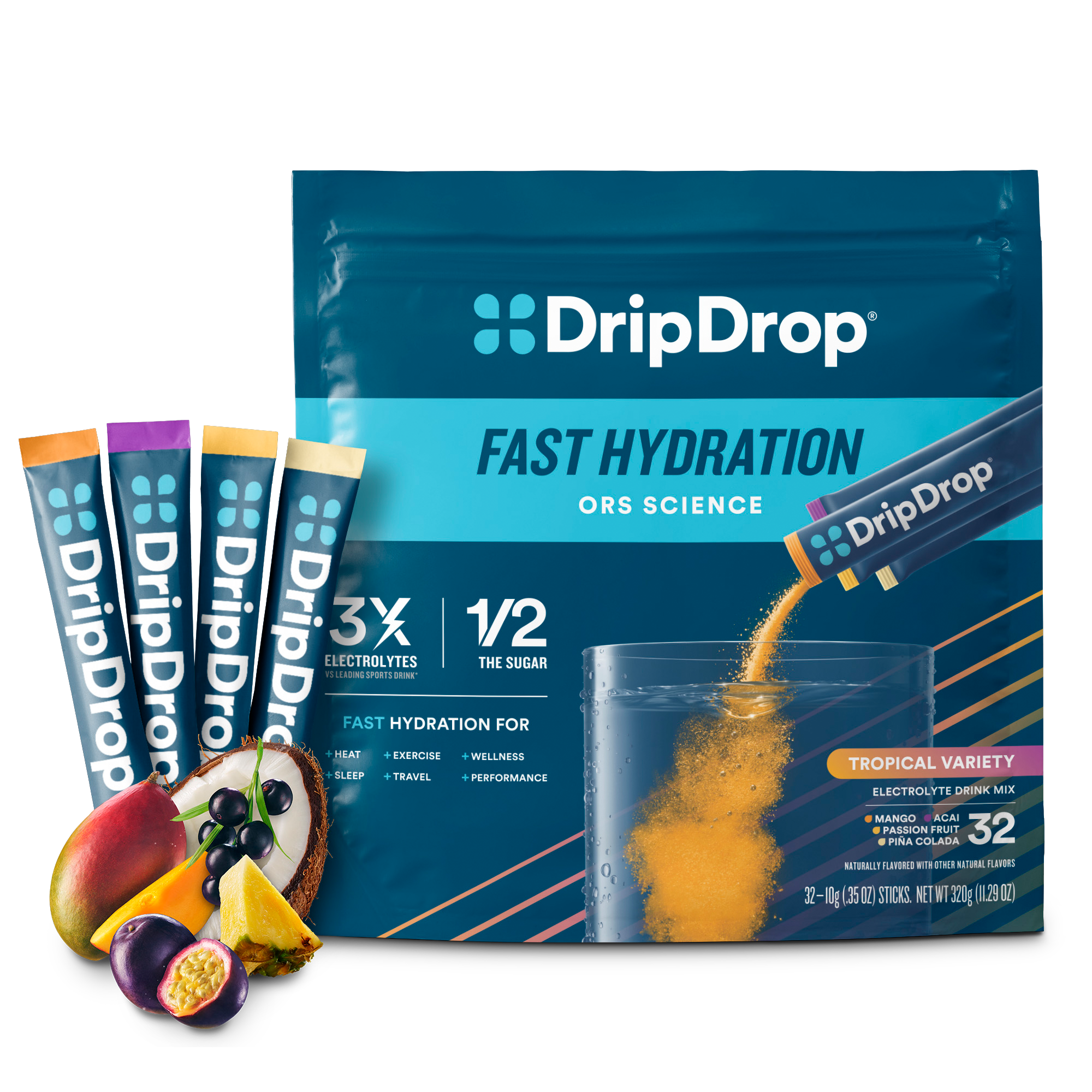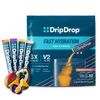After polishing off an extra large pretzel with chunks of salt or a basket of crispy fries, you probably reach for a nice, tall glass of water. That large salt intake must've really dehydrated your body, right? Maybe not.
Most people assume that salt does dehydrate you, but before blaming your salty snack, consider the role it plays in the body’s hydration process. Ingesting a precise balance of sodium and glucose can trigger a bodily response that helps you rapidly absorb fluids and electrolytes. DripDrop was designed with this hydration shortcut in mind, helping you consume the right amount of sodium to keep your fluid levels balanced.
In this guide, we’ll explore the connection between sodium and how our bodies stay hydrated.
What is Sodium?
Everyday table salt is composed of two elements: sodium and chloride. Sodium is an electrolyte—one of many vitamins and minerals capable of conducting electricity, which is an integral component of numerous bodily functions. When sodium or any other electrolyte is dissolved in bodily fluids, it can conduct an electric charge that assists muscles, nerves, and the brain with communication. Specifically, sodium helps to regulate the amount of water that's inside and surrounding cells in the body.
But the answer to the question, “Does salt dehydrate you?” is not that simple. Sodium plays an essential role in hydration and fluid retention, but consuming too much salt can have adverse effects.
How Does Salt Impact Hydration?
The amount of fluid present in your blood is determined by how much fluid is present in and around cells and the amount of sodium in the body. The body monitors how much fluid is in the blood versus the amount of sodium present and will utilize the kidneys to balance the scales, either by releasing more sodium or helping the blood retain its fluids. You need to consume both water and electrolytes, like sodium, to achieve ideal hydration levels.
Too much sodium can cause hypernatremia, which usually leads to thirst and, if left untreated, confusion, muscle twitching, and seizures.
While hypernatremia can be caused by a person’s diet, vomiting, diarrhea, excessive sweat or increased urination can also cause this condition. People with high blood sugar or diabetes may urinate more, leading to an imbalance.
Conversely, an amount of sodium too low causes hyponatremia, characterized by a sluggish and confused feeling that may also lead to muscle twitching and seizures, in addition to the possibility of becoming less responsive as time goes by.
Overhydration can lead to hyponatremia, but it can also be caused by kidney disease, heart failure, and the ingestion of Thiazide diuretics, or water pills.
Such severe symptoms highlight the important role sodium has as a messenger for the brain and regulator for body fluids. Though sodium does not hydrate you directly, it plays a vital role in how your body maintains fluid levels.
If sodium draws too much fluid to the blood, it’ll cause a rise in blood volume and force the heart to work harder pumping that blood around the body. The increased weight of that blood puts a strain on vital organs, causing the condition known as hypertension, or high blood pressure.
How Much Salt is Too Much (Or Too Little)?
According to the United States Federal Department of Agriculture, the daily amount of recommended sodium is less than 23,000 mg per day. The organization recommends utilizing the daily value percentage found on a product’s nutritional facts as a measure for sodium in your diet—anything under 5% daily value should be considered too little, while anything above 20% daily value should be considered too much.
If you’re still wondering, “Does salt dehydrate you?” keep moderation in mind before you reach for that salty snack. Too much salt can disturb the sodium balance in your body, which may lead to dehydration. But sodium is an essential component to hydration, so it’s important not to completely cut it out of your diet either.
When experiencing mild to moderate dehydration symptoms, drinking an electrolyte mix like DripDrop can help provide the perfect amount of sodium to glucose, speeding up your body’s ability to absorb water and minerals. This hydration shortcut is why DripDrop hydrates you fast when you need it most.
How to ensure you’re getting the right amount of salt
Getting the right amount of salt can be tricky since so many foods contain a large amount of this tasty mineral, even if they don’t taste like they do. The FDA points out some obvious offenders like pizza, tacos, salty snacks, and deli meats, but preserved foods can include large amounts of sodium, too. Pastries and cereal are also surprisingly stealthy offenders.
To avoid dehydration caused by salt consumption, stick to fresh ingredients, avoid seasonings that list sodium on their labels, and prepare the food yourself. If you order food, consider the sodium content and if you’ve already had a lot of salt that day, request no salt. Salt does dehydrate you if you consume it in large quantities.
However, not enough salt can have similarly debilitating effects, so don’t cut it out completely. Healthy options for sodium intake can include supplements, but avoid salt tablets. This sudden, large salt intake can create an imbalance.
DripDrop can provide the precise amount of sodium needed to increase fluid absorption, allowing you to hydrate quickly—particularly after a tough workout or on a hot day.
Maintain Optimal Hydration with DripDrop
DripDrop is designed to help the body function at its best, supplying electrolytes that work in tandem with sodium. Not only does DripDrop help achieve that perfect balance, but it also tastes delicious. Available in several flavors and a zero-sugar option, DripDrop provides three times electrolytes than the leading sports drink with one-half the amount of sugar. In DripDrop Zero, you can get the same hydration and electrolyte benefits without the added sugar. Try the multi-flavor pouch to discover your new favorite flavor.

